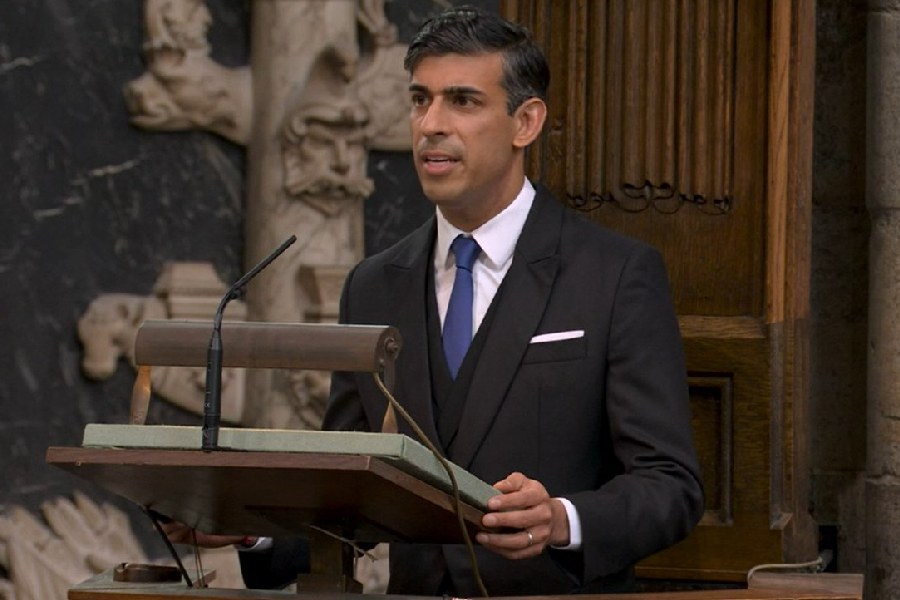The British government's Illegal Migration Bill, instrumental to Prime Minister Rishi Sunak’s pledge to “stop the boats” of illegal migrants entering the country’s shores, has cleared its long-drawn parliamentary hurdle and will soon become law after Royal Assent from King Charles III.
Under the bill, the UK’s Home Secretary will have a legal duty to detain and remove anyone entering the UK illegally. In a late-night debate in the House of Lords on Monday, further amendments to the bill were dismissed and it passed after a standoff between both Houses over the issue.
In the last few weeks, the bill passed between the House of Commons and House of Lords a number of times in a process often dubbed as parliamentary ping-pong in British politics until a consensus is reached.
In the Commons, former prime minister Theresa May led a series of backbench rebellions over plans to restrict access to the UK asylum system for victims of modern slavery. May, who as home secretary introduced the Modern Slavery Act, said the bill "will enable more slave drivers to operate and make money out of human misery".
The government argued that anyone identified as a potential victim of modern slavery would be returned home or to another "safe country away from those who have trafficked them".
However, May did not vote for an exemption from the bill for suspected victims of slavery, paving the way for its passage.
Once the bill becomes an Act, it will be UK Home Secretary Suella Braverman’s legal duty to remove anyone who comes to the UK illegally and applies to victims of trafficking and slavery, accompanied children and unaccompanied children as soon as they turn 18.
“The Prime Minister (Rishi Sunak) and I have made a promise to the British people to stop the boats,” Braverman told the BBC.
“We are committed to delivering on that promise. We’ve got an unsustainable problem that we need to fix,” she said, with reference to illegal crossings made by migrants across the English Channel.
During the House of Lords debate, Home Office minister Lord Murray of Blidworth said the number of small boat arrivals had "overwhelmed" the UK's asylum system and that accommodation was costing taxpayers GBP 6 million per day.
"With over 45,000 people making dangerous Channel crossings last year this is simply no longer sustainable," he told peers, adding it was "only right" that the "business model" of human traffickers be broken.
The new legislation would also scrap existing legal caps on how long those entering the UK illegally can be held ahead of being deported. MPs and peers had attempted to reinsert a three day limit on how long children can be detained, as well as the 24-hour maximum for children unaccompanied by an adult. But the plans were eventually dropped after they were again rejected in the House of Commons.
Earlier, the government made concessions on the detention of unaccompanied children, who will be granted immigration bail after eight days, and on pregnant women, for whom the current limit of 72 hours detention will be retained.
However, a linked aspect of the government's bill, the policy of using Rwanda as a safe third country to deport illegal migrants while their asylum claims are processed, is still tied up in legal wrangles in court.
Except for the headline, this story has not been edited by The Telegraph Online staff and has been published from a syndicated feed.











